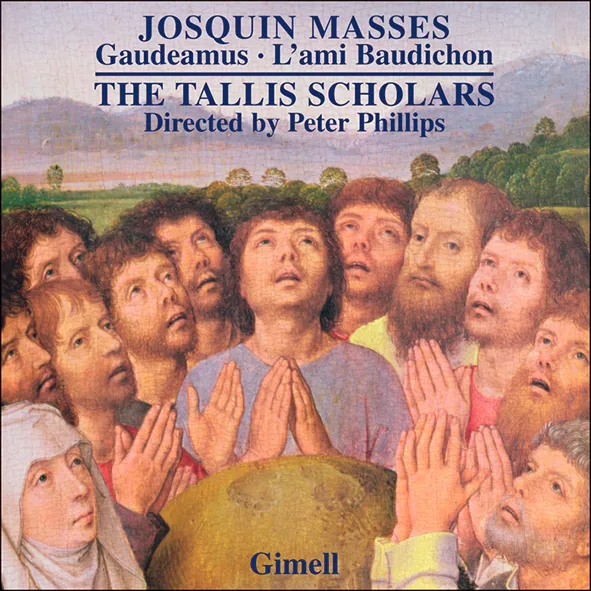
Josquin des Prés Missa Gaudeamus; Missa L’ami Baudichon Tallis Scholars/Peter Phillips Gimell CDGIM 050 66:48 mins
This is the seventh of nine projected discs in The Tallis Scholars’ ongoing endeavour to record the complete Masses of Josquin des Prés. The pair of works recorded here mirror the composer’s dual faces – one recondite, the other earthly. The Missa Gaudeamus – based on the plainchant from which it takes its name – is a cerebral, spiritual inspiration, rigorously worked out with a quasi-mathematical approach to the polyphony. Memorable highlights are the Gloria, which spirals to a heady climax; the ‘Et in Spiritum Sanctum’, where the basses plumb cavernous depths, and the haunting Agnus Dei which contrasts starkly beautiful canonic duets with elaborately woven tapestries of sound.
The Missa L’ami Baudichon, by contrast, is based on a simple French folk song whose vulgar text is a surprising spur for a sacred work. Josquin’s youthful setting is breezy and radiant – a far cry from the more arcane treatment of the later, plainchant Mass. It’s a light-filled work, and nowhere more so than in the ‘Et resurrexit’ of the Credo, where the outer voices circle joyfully round the imperturbable tenor, and soar to celestial heights in the final ‘Amen’. Peter Phillips has been leading his ensemble through Josquin’s Masses for well over 30 years and his passion for the music is tireless. The Scholars’ typically silky, seraphic sound is here given a more robust and visceral edge, thanks to boyish-toned sopranos (apt for music originally performed by an all-male ensemble), stout lower voices and muscular rhythms. Using just nine singers gives an intimacy to these readings and ensures clear-cut words and sharply delineated vocal lines. The vocal balance is sensitively judged, and Gimell’s recording – in the chapel of Merton College, Oxford – is lush without being overly splashy.
Kate Bolton-Porciatti